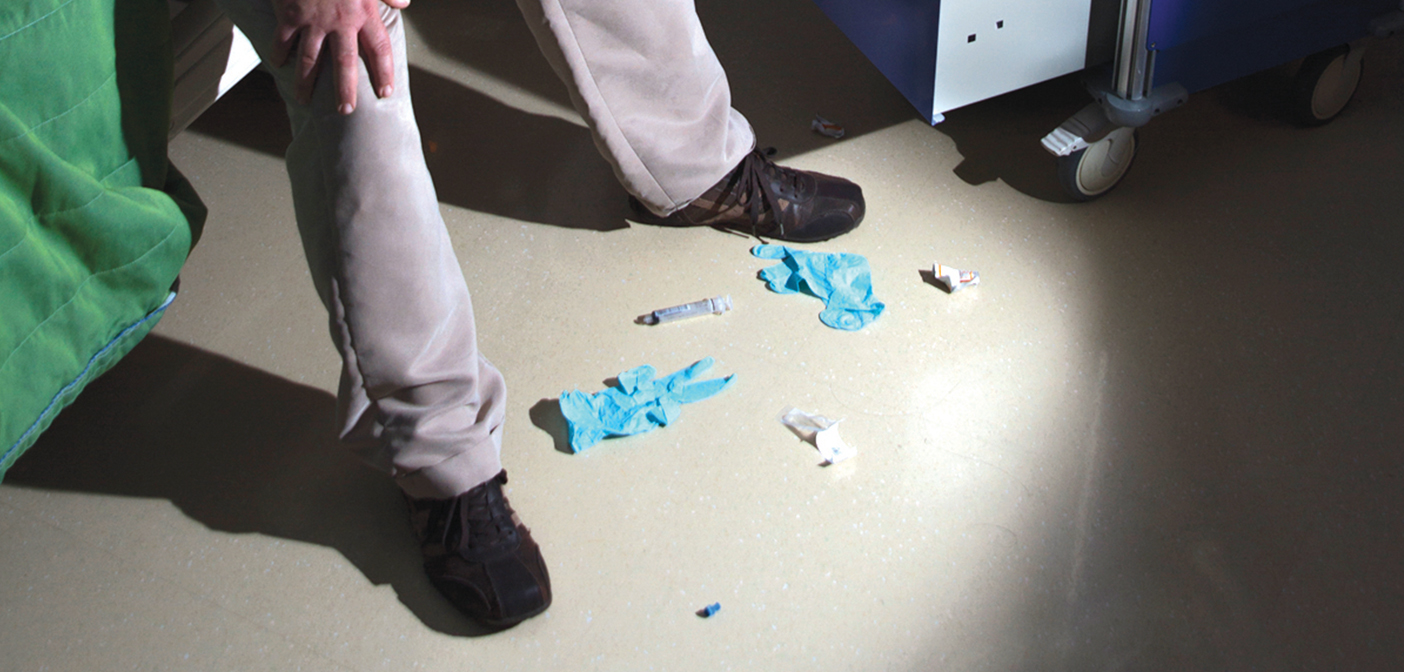Bounce Back program helps staff talk through and cope with the lows
Nurses are renowned for their ability to help patients and families cope with difficult diagnoses and challenging situations. But who helps the nurse regain emotional balance when seven patients die in one week? When a pediatric patient the nurse knows as her child’s friend is admitted with a severe injury or illness?
A new program called Bounce Back is helping staff at All Children’s’ Hospital process and handle the emotional challenges that come with caring for very sick children and their families. The program, started by Sondra Boatman, MSN, RN, CNL, and Loren Mirsky-Piatkin, MS, CCLS, gives staff a place and time to discuss sensitive issues.
“As clinicians, we often have to put our emotions aside,” says Boatman, a clinical nurse leader in the Heart Center. “That’s hard.Photo by Allyn DivitoIt’s hard to feel sad because of something that just happened, and then turn that off to walk over and deal with another patient and family.”
Historically, Boatman says, “there have been no outlets for us to talk about stuff. I cannot go home and talk about what I do and see every day because of HIPAA rules [protecting patient privacy]. And most people don’t really get what we do. What they see on TV is often success stories, and more than just those happy stories happen here in the hospital.”
Boatman, a member of All Children’s Wellness Committee, discussed her concerns with Mirsky-Piatkin, a child life specialist, and learned that the Child Life Department had started offering facilitated groups to help staff de-stress. Together, Boatman and Mirsky-Piakin decided to create a similar program for the all front-line staff. They decided to name their program Bounce Back.
“That’s our goal,” Boatman explains. “We want to be able to take a situation and bounce back.”
The program, which started a year ago, involves regular, facilitated gatherings of staff. Each group meets for an hour about once a month; attendance at a Bounce Back session is entirely voluntary.
Participants go around the room and share what’s on their minds (they can pass, if they wish).
“By the time it gets back to the facilitator, there’s usually an overarching theme,” Boatman says. “The role of the facilitator is to move the conversation along and keep things positive. We’ve made it very clear that these are not gripe sessions. A Bounce Back is to help people work through situations.”
The medical unit, quality resources department, and acute care rehab unit of All Children’s Hospital now regularly schedule Bounce Back sessions. Staff can also request sessions as needed.
“Anyone who feels the need for a Bounce Back can ask for one,” says Cindy Driscoll, MS, RN, NEA-BC, interim chief nursing officer. “It’s to the point now where, when something happens, it’s become part of our culture to ask, ‘Has a Bounce Back been planned yet?’
“This program really fits in with our culture of supporting staff so they can do their job, be productive, and feel valued.”

